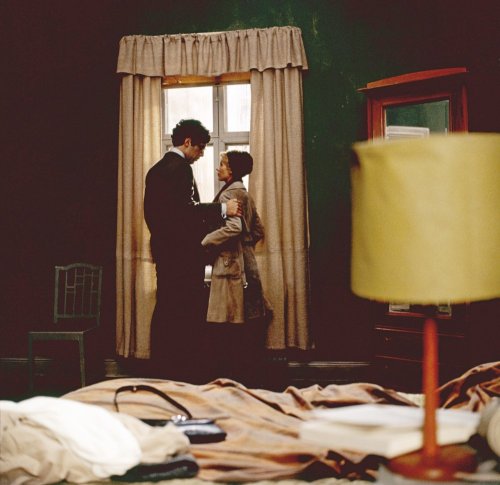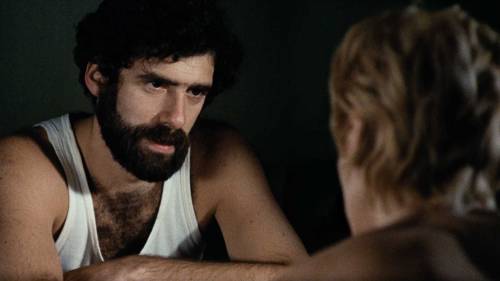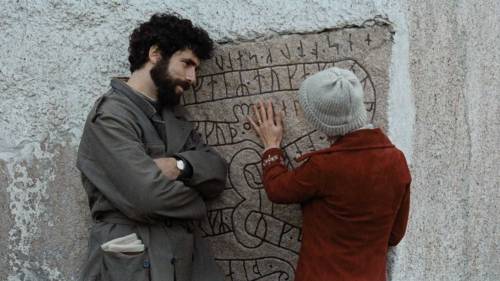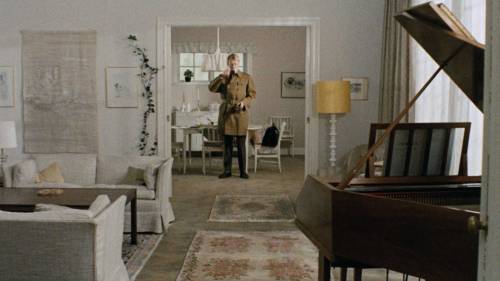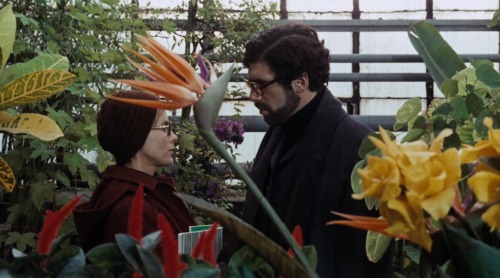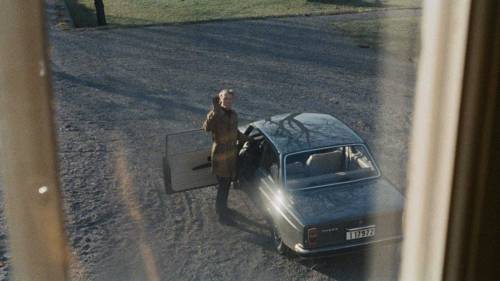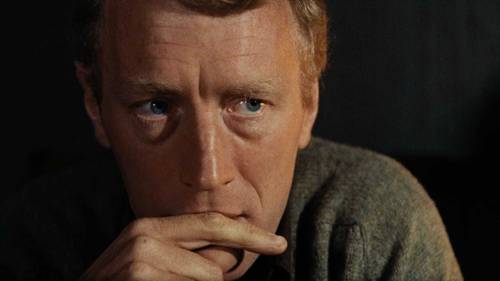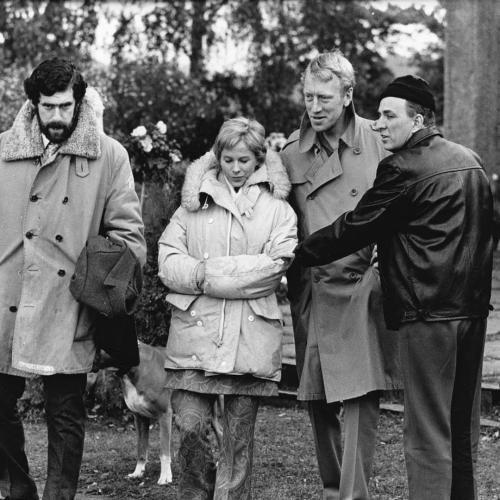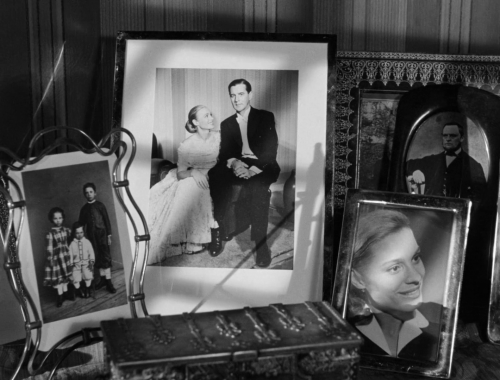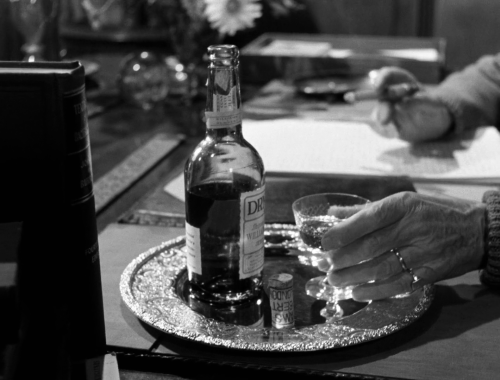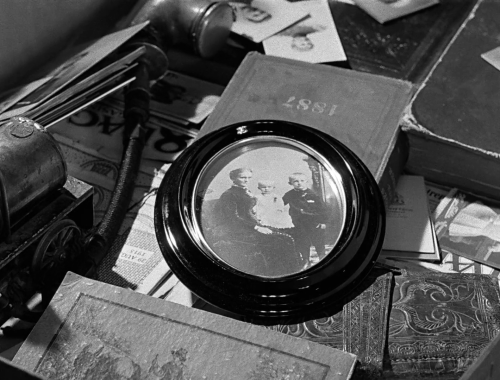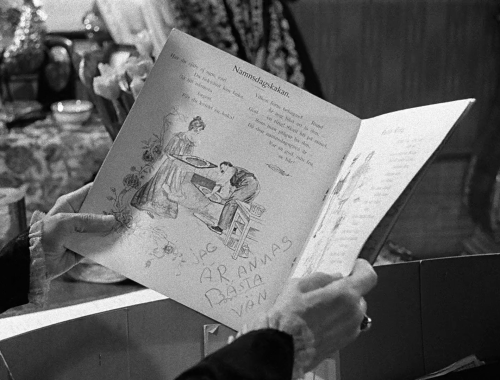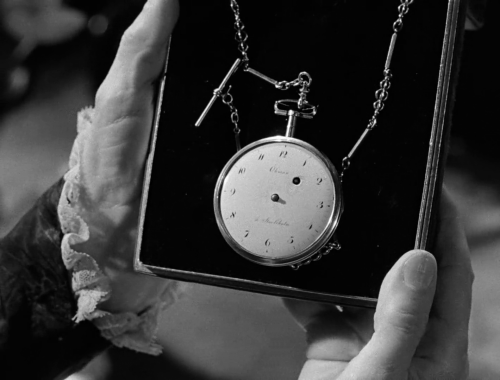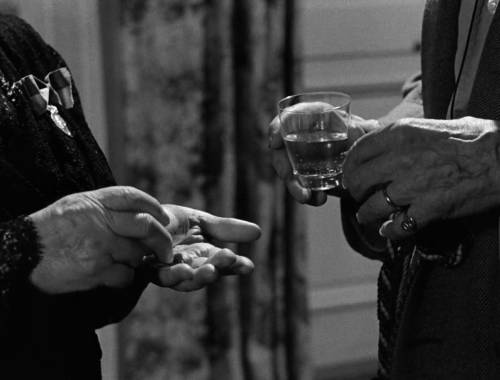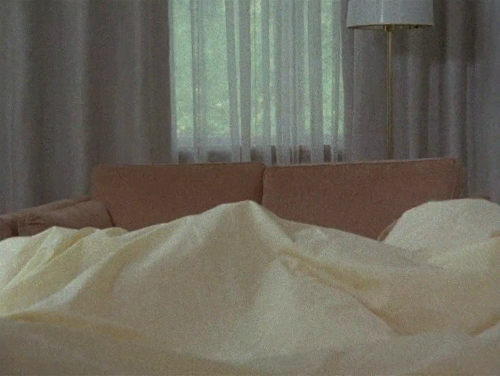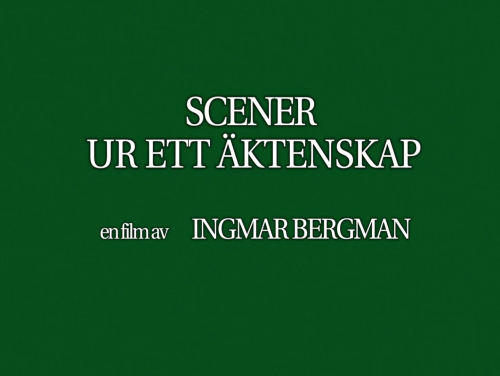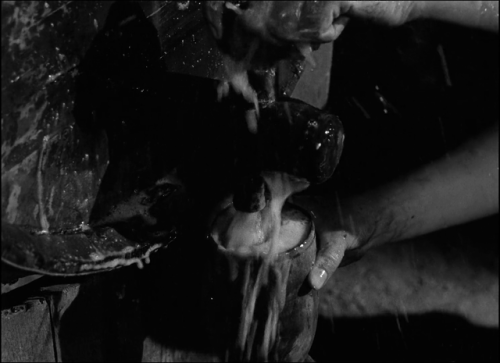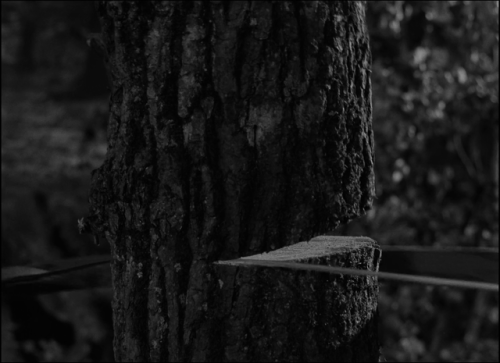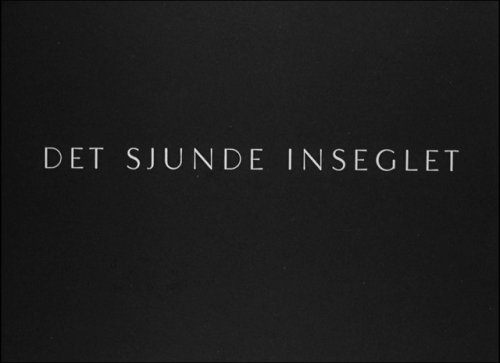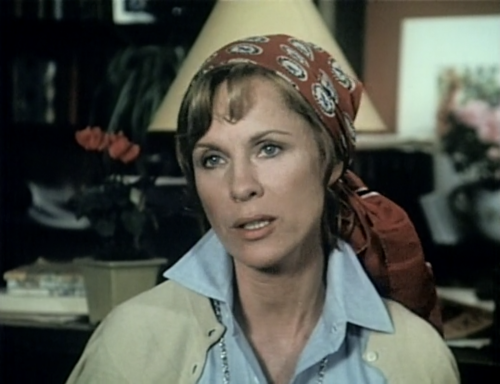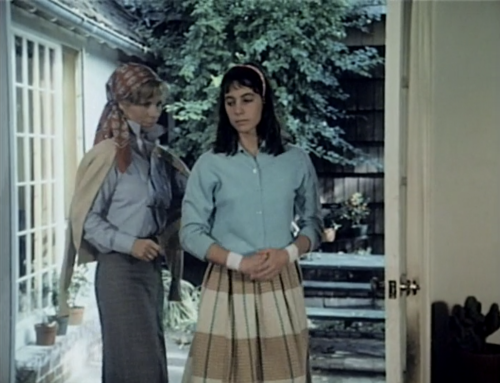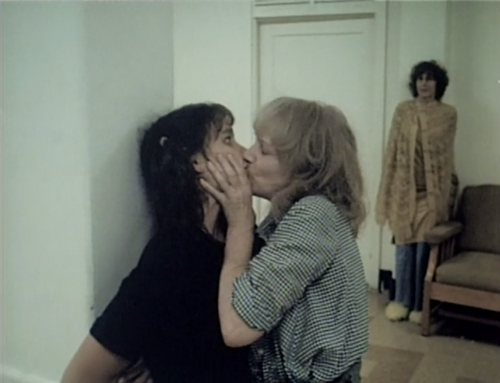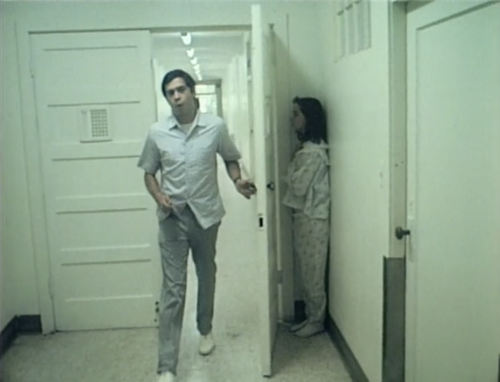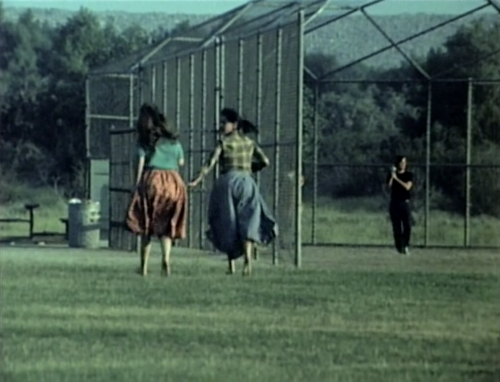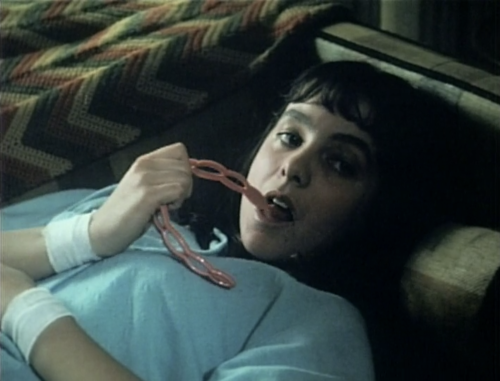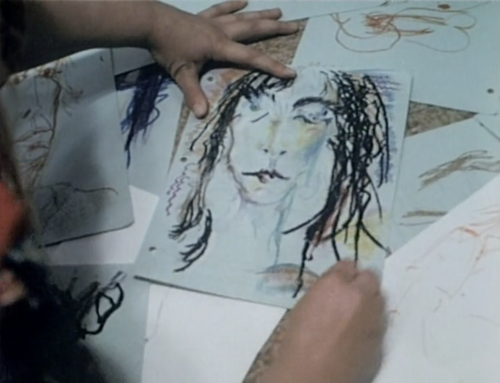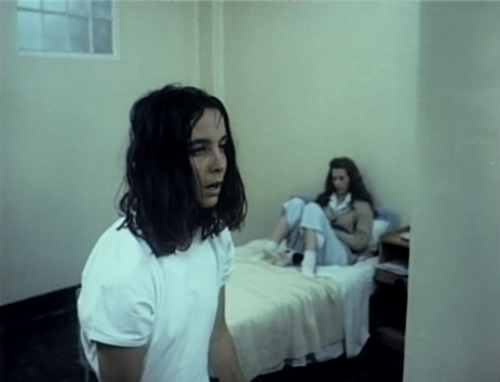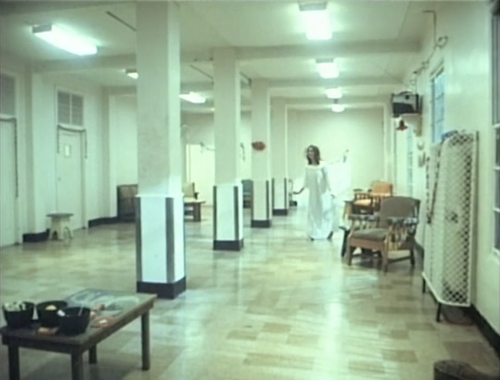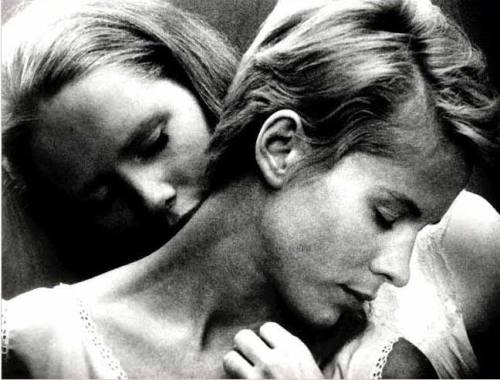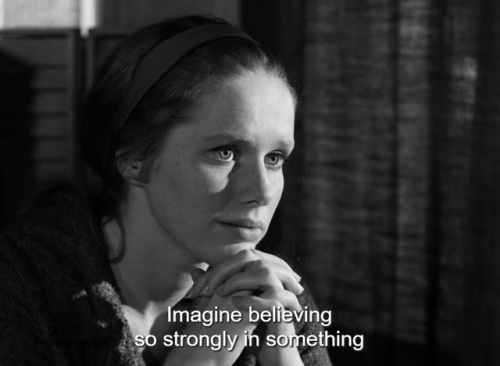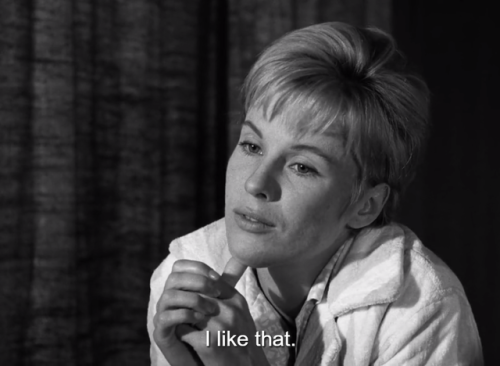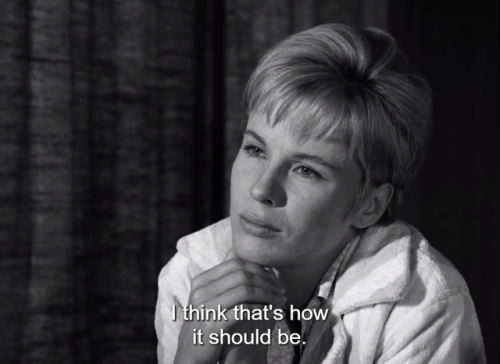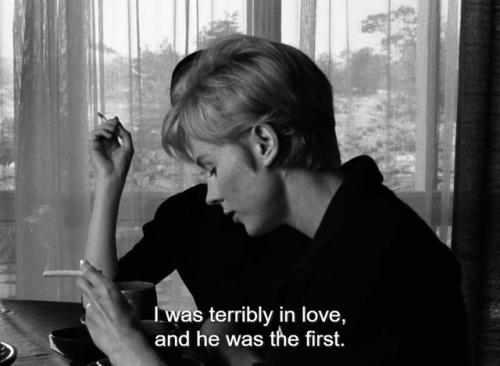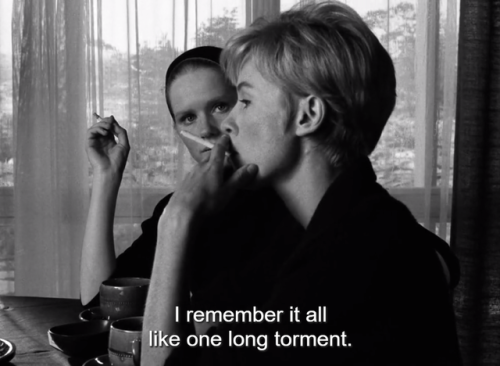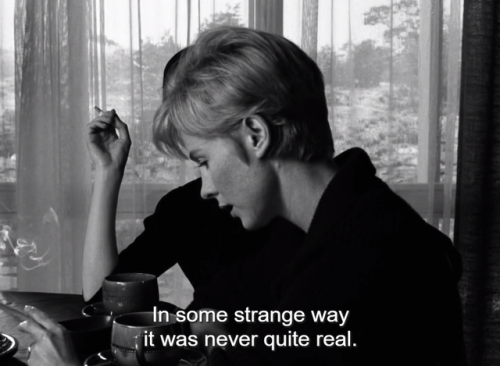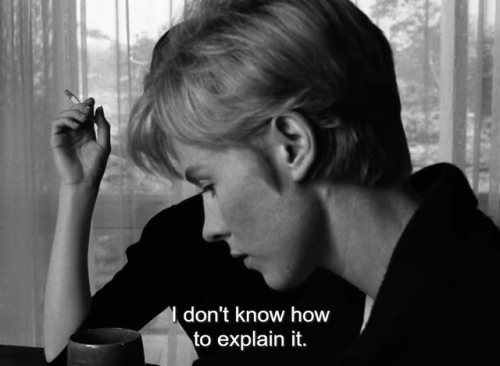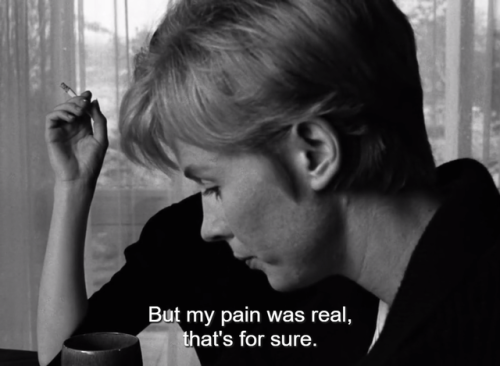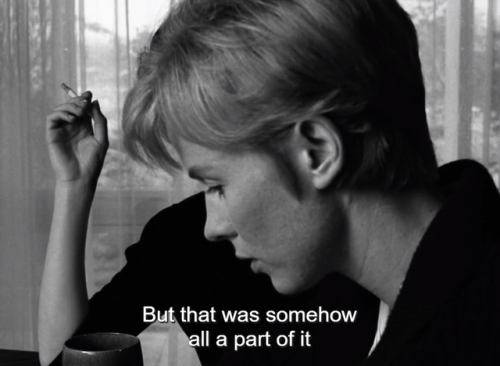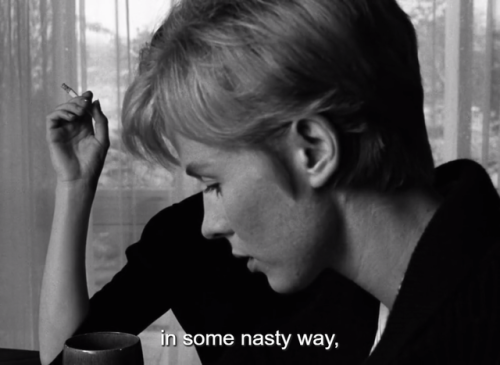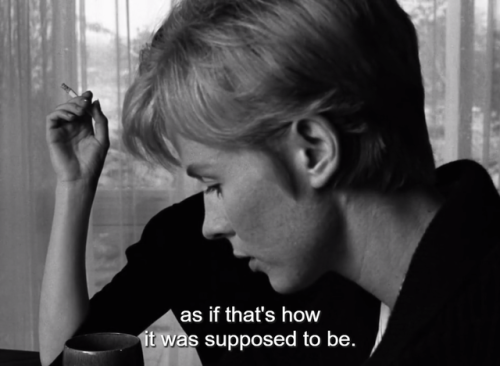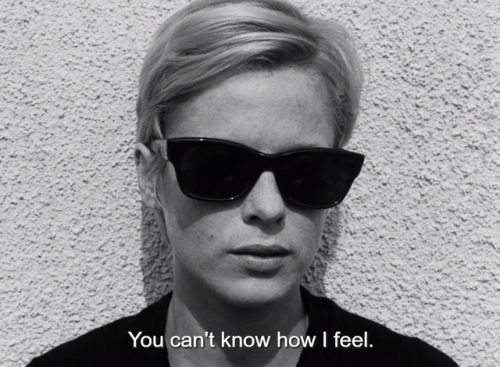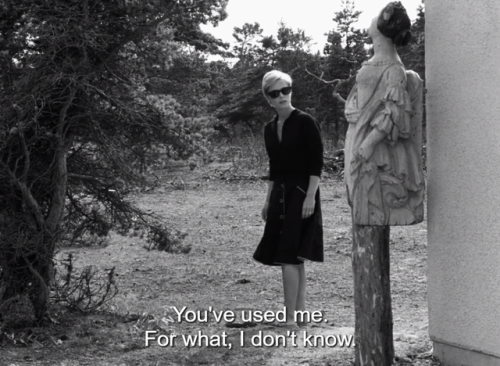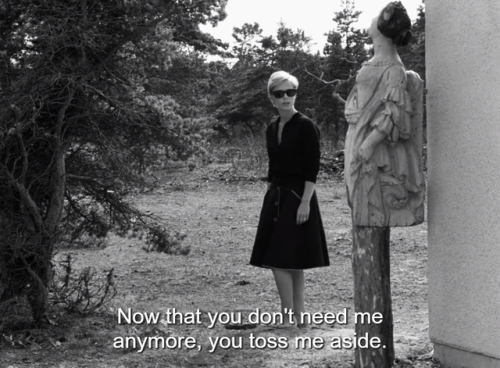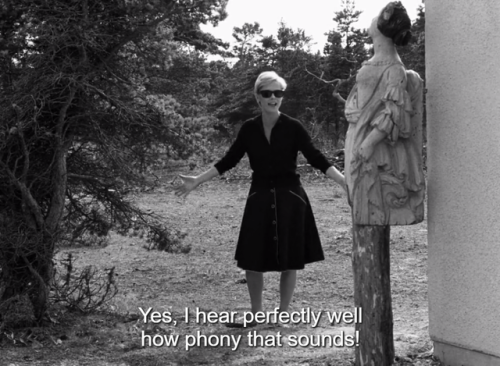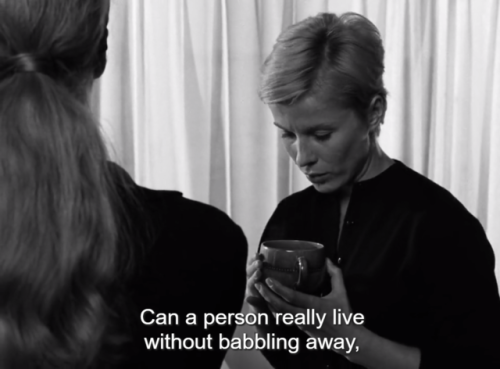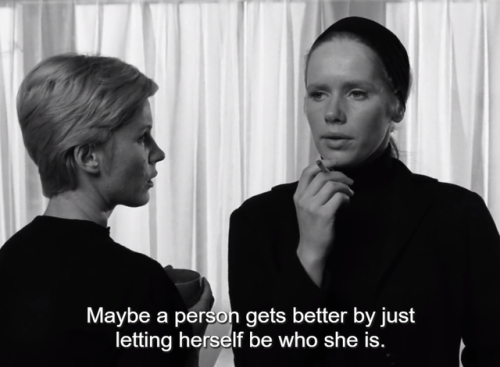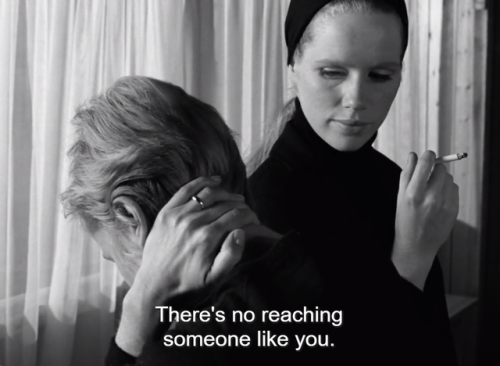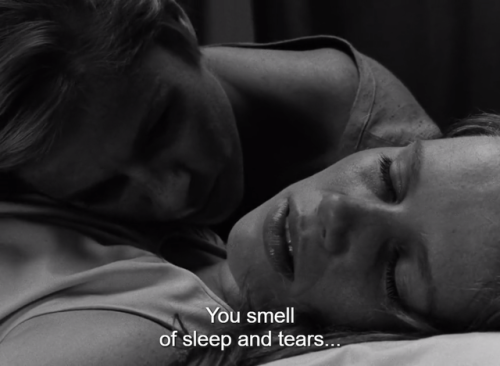#bibi andersson
Ingmar Bergman directing Elliott Gould, Bibi Andersson & Max Von Sydow on the set of “The Touch”
Post link
Cinematography of Persona (1966) and Portrait of a Lady on Fire (2019)










Women on the run.
Films in Frame - Persona, Potrait of the Lady on Fire, Licorice Pizza, The Worst Person in the World, Spencer, The Double Life of Veronique, Little Women, Frances Ha, Fleabag, Run Lola Run
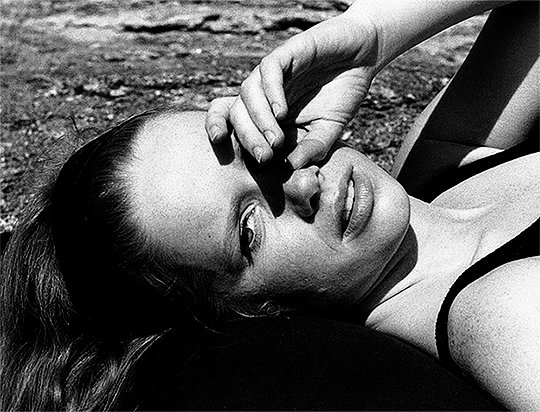
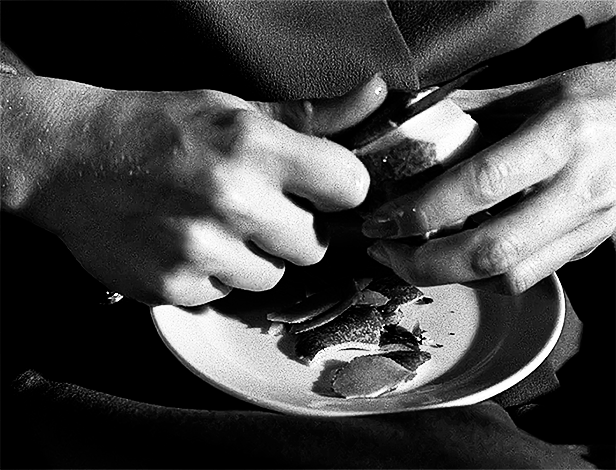
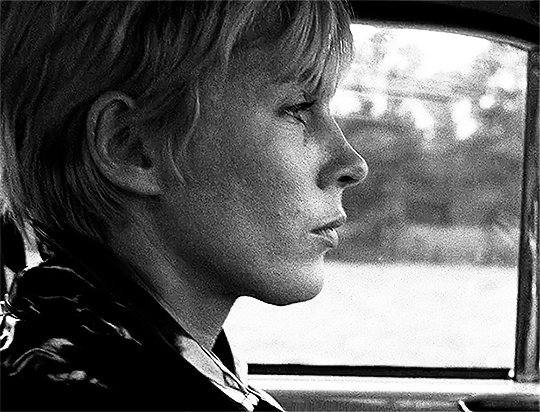
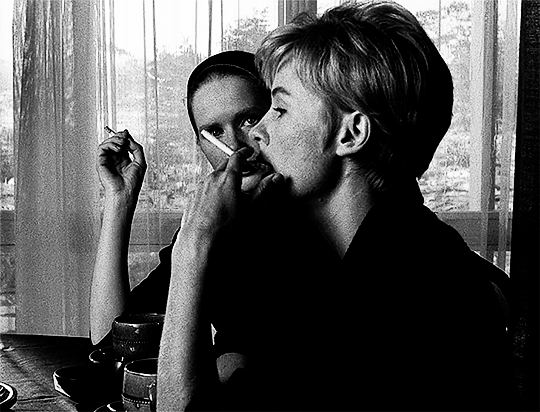

Persona (1966)
dir. Ingmar Bergman.
Wild Strawberries (1957)
Directed by Ingmar Bergman
Cinematography by Gunnar Fischer
“When you were little you belived in Santa Claus, now you belive in God.”
Post link
Scenes from a Marriage (1974)
Directed by Ingmar Bergman
Cinematography by Sven Nykvist
“We were not in love. On the contrary, we were sad.”
Post link
The Seventh Seal (1957)
Directed by Ingmar Bergman
Cinematography by Gunnar Fischer
“Is it so terribly inconceivable to comprehend God with one’s senses?”
Post link
I Never Promised You a Rose Garden • 1977 • Anthony Page
Based on Joanne Greenberg’s 1964 novel of the same name.
Post link

“I can’t imagine a worse thing than getting old”
Ingmar Bergman's Wild Strawberries is (somewhat correctly) noted as being one of his most optimistic films, yet, as with much of the great Swedish director’s body of work, its themes are not entirely clear-cut. Wild Strawberries is, in this regard, one of Bergman’s more simplistic films, but it’s also one of the greatest works of his career.
The film follows Isak, a stubborn 78 year old doctor, as he travels across country to be given an honorary doctorate to mark his fifty year contribution to medicine. Along the way, he is confronted by the mistakes he made with his family and strives to change his ways.
Wild Strawberries is a film set up much like Charles Dickens' A Christmas Carol. It follows the reaffirmation of a man who is respected but not loved. But the difference is that Bergman never explicitly shows Isak’s mistakes and flaws like Dickens does Ebenezer Scrooge. His parental failures are mentioned in passing, but only the good sides of his personality are placed on the screen, and this biased depiction of the character allows us to sympathise more with his plight.
It is this simple fact that makes Wild Strawberries a very different film to, say, The Seventh Seal, Bergman’s other film from 1957. Wild Strawberries opens with a man shrouded in bitterness, loneliness and resignation, and documents his reaffirmation of life; The Seventh Seal, on the other hand, opens with disillusioned yet shrewd man who believes he can save his own life by beating Death in a game of chess, which he cannot do.
This is not to say that Wild Strawberries is a better film - both are extraordinary - but it is a film that shows Bergman in unusually optimistic spirits, and one that cements his status as one of cinema’s truest artists.
Simultaneously depressing and uplifting, Wild Strawberries is not just an existential road movie, but the existential road movie, and justifiably one of Bergman’s most celebrated cinematic achievements.
I Never Promised You a Rose Garden (1977)
Directed by Anthony Page
Doomsy’s Rating: 63/100
I’ve praised the production talents of Roger Corman, the exploitation film maestro who single-handedly invented the grindhouse genre, many times before on this blog. Well, I never thought I’d see him go so far as to make a sleazy film set in a mental hospital with ambitions well beyond its genre. This is one strangefilm. In fact, I can’t say I’ve seen many like it. Kathleen Quinlan, who would later become a character actress of quite some brilliance (in films such as Event Horizon andThe Hills Have Eyes remake) plays a girl named Deborah who by the looks of modern psychiatry, seems to suffer from a psychotic and dissociative disorder. She spends most of this film’s 90 minutes strapped to a bed in a mental institution, lost in a haze of delusion and suicidal ideation. Bibi Andersson, best known as Ingmar Bergman’s muse, is her sympathetic doctor (hilariously named Dr. Fried) and together they must help poor Deborah out of her psychoses. And honestly, that’s pretty much it.
First thing to say is, from a present-day perspective this is one seriously depraved affair. I couldn’t help but wonder if this was made by Corman as a quick cash-in on the heels of One Flew Over the Cuckoo’s Nest, and while that certainly is likely, I Never Promised You a Rose Garden is an entirely different beast. While Forman’s film was concerned with the tragic nature of the McMurphy character and his battle with Nurse Ratched, director Page and Corman seem less concerned with narrative and more with histrionic art-house surrealism in the vein of Ken Russell. And boy, is this sordid tale trippy. The hallucinatory scenes are jarring and often-times overwhelming, calling to mind certain scenes from Dennis Hopper’s The Trip and Bergman’s The Seventh Seal. I’d also be remiss if I didn’t call attention to the bizarre casting. In supporting roles, we find Danny Elfman (!) leading some weird Monty Pythonesque knights haunting the protagonist, Mel Gibson and Dennis Quaid as baseball players in dream sequences, and Lorraine Gary (Mrs. Brody from Jaws)playing the main character’s self-absorbed mother. Oh, and Reni Santoni (RIP) as one of the most evil orderlies this side of Ben Stiller in Happy Gilmore.
Beyond the simplistic narrative, there’s a not-so-surprising amount of exploitation content in the film’s mental hospital setting, some of which is inappropriately played for laughs, but most of the rest is relegated to frankly disturbing scenes of human suffering. Most of the time, when Hollywood tackles subjects like severe mental illness and long-term hospitalizations, there is a certain artifice only possible when audience attention spans are in the forefront of the producer’s minds. Most viewers who view this will be stunned to find the lack of characterization and narrative more indicative of a documentary, the camera merely observational and the message being one of understanding and empathy.
The film this reminds me most of is Allan King’s docudrama Warrendale, which at ten years older, had the benefit of being a much more shocking experience. What Page and Corman bring to the catalog of suffering is more up-close-and-personal and exhausting than King, who brought a more detached filmmaking style. I think beyond the hysteria and shrill insanity that pervades most of this film’s runtime, there is something interesting going on here. I’m just not sure what it is. I did have a bit of a headache after finishing this, but that could have just been the copious amount of weed and vodka I had just consumed. Who knows.
Post link

